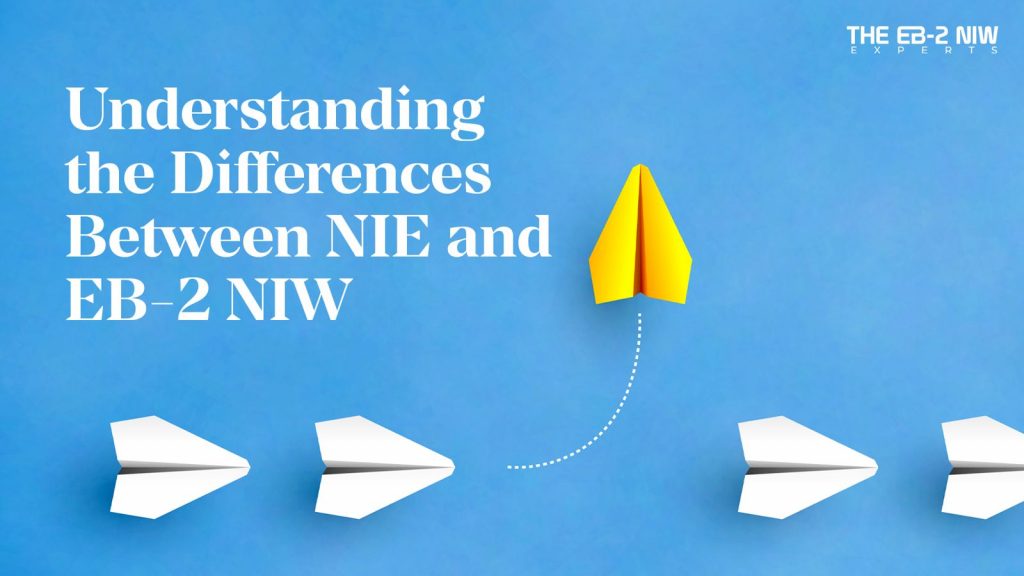Navigating the intricacies of U.S. immigration law can be daunting, especially when it comes to understanding the distinctions between various visa categories and pathways to residency. Two commonly confused options are the National Interest Exception (NIE) and the EB-2 National Interest Waiver (NIW). While both serve important purposes in facilitating entry and residency in the United States, they have distinct eligibility criteria, application processes, and implications for prospective immigrants. In this comprehensive guide, we’ll delve into the nuances of each program to help you make informed decisions about your immigration journey.
National Interest Exception (NIE):
The National Interest Exception (NIE) is a mechanism that allows individuals who are otherwise subject to certain travel restrictions to enter the United States for specific purposes deemed to be in the national interest. These travel restrictions may include Presidential Proclamations, such as those related to the COVID-19 pandemic, which restrict entry for certain travelers from specific countries.
Key Points about NIE:
Purpose: The primary purpose of the NIE is to provide exemptions to travel restrictions based on considerations of national interest.
Eligibility Criteria: Eligibility for an NIE varies depending on the specific travel restrictions in place and the issuing authority. Generally, individuals may qualify for an NIE if their travel is deemed to be in the national interest of the United States, such as for critical infrastructure sectors, humanitarian reasons, or economic interests.
Application Process: The process for obtaining an NIE may vary depending on the circumstances and policies in place at the time. In some cases, individuals may apply directly to a U.S. consulate or embassy abroad, while in others, they may request an NIE through their employer or another designated entity.
Implications: While an NIE facilitates temporary entry to the United States for specific purposes, it does not lead to permanent residency or provide a pathway to citizenship. Individuals granted an NIE are typically permitted to enter the U.S. for a limited duration and specific purpose.
EB-2 National Interest Waiver (NIW):
The EB-2 National Interest Waiver (NIW) is a visa category that allows individuals with exceptional abilities or advanced degrees to seek permanent residency in the United States without the need for employer sponsorship or a labor certification. The NIW is specifically tailored for individuals whose work is deemed to be in the national interest of the United States.
Purpose: The primary purpose of the EB-2 NIW is to attract and retain individuals with exceptional abilities or advanced degrees who can contribute to the national interest of the United States.
Eligibility Criteria: To qualify for an EB-2 NIW, applicants must demonstrate exceptional abilities or advanced degrees in fields such as science, technology, engineering, mathematics, healthcare, education, or business. Additionally, they must prove that their work benefits the national interest of the United States.
Application Process: The EB-2 NIW petition process involves preparing and submitting a comprehensive application package to U.S. Citizenship and Immigration Services (USCIS). This includes documenting exceptional abilities, contributions to the national interest, and meeting other eligibility criteria outlined by USCIS.
Implications: Successful applicants for the EB-2 NIW are granted permanent residency in the United States, allowing them to live and work in the country indefinitely. The EB-2 NIW provides a direct pathway to obtaining a green card without the need for employer sponsorship or a labor certification.
Conclusion:
While the National Interest Exception (NIE) and the EB-2 National Interest Waiver (NIW) serve distinct purposes in the realm of U.S. immigration, both play important roles in facilitating entry and residency for individuals whose presence or contributions are deemed to be in the national interest. By understanding the differences between these two programs, prospective immigrants can make informed decisions about the most suitable pathway for achieving their immigration goals in the United States. Whether seeking temporary entry for specific purposes or pursuing permanent residency, careful consideration of eligibility criteria, application processes, and implications is essential for navigating the complexities of U.S. immigration law. At THE EB-2NIW EXPERTS we are equipped with all the tools you need to get your EB-2 NIW approved through our Inhouse attorneys and consultants


